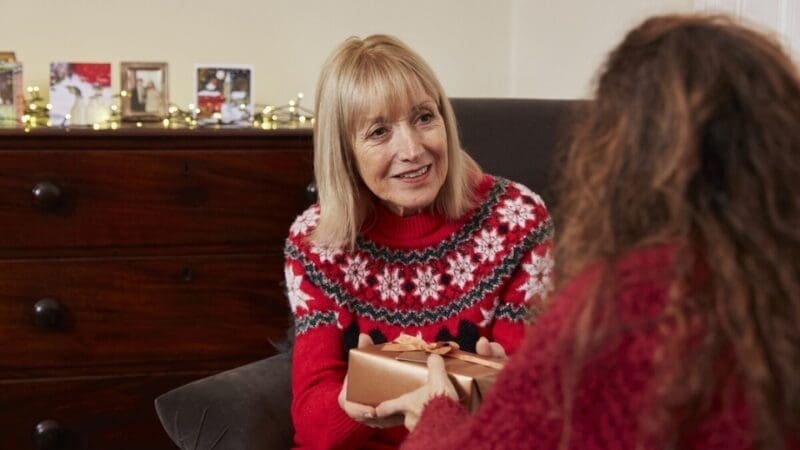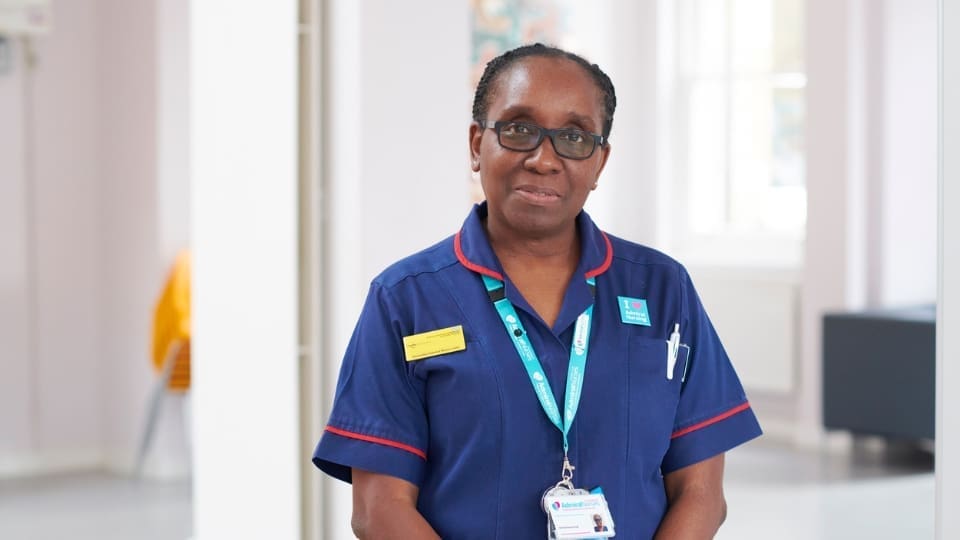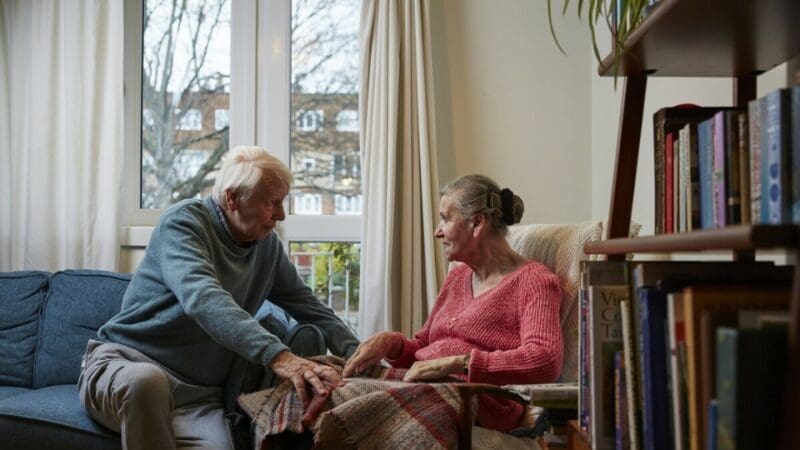
Christmas gifts for people with dementia
Our dementia specialist Admiral Nurses have put together suggestions for appropriate Christmas gifts for people with dementia

Roxanne Viera-Moreno, Lead Admiral Nurse at Barking, Redbridge and Havering University Hospitals NHS Trust, reflects on her career and what Black History Month means to her.
I arrived in London from Trinidad and Tobago in 1990. I was already working as a nurse but my qualification was not equivalent to the required qualification in the UK and so I completed my nurse training here. I have worked in palliative care settings over my 20-year career and enjoyed working with people living with dementia. I wanted to work with them earlier on in the trajectory of their dementia, so decided to become an Admiral Nurse.
I worked as a Macmillan Palliative Care Nurse Specialist for many years. Generally, a diagnosis of cancer is made quickly, and people are entitled to have a Macmillan Nurse with them at their clinic appointments. A set ‘two-week-wait’ pathway is followed: the patient attends an appointment where a diagnosis is made, and a treatment plan is given, along with nurse support to continue the conversation outside the clinic.
However, I noticed that people living with dementia were often left waiting a long time to receive a diagnosis and during this time, were left to struggle on their own. I believe an Admiral Nurse should be present from the moment families are given a dementia diagnosis and then continue to support them throughout their journey.
I started my current job as Admiral Nurse Lead in 2022. My role is to support patients with a dementia diagnosis while they are in the hospital setting.
I work in an acute hospital and my focus is on delivering person-centred care for people living with dementia and their families. Being admitted to hospital is often very frightening. The change in environment for the person with dementia can make them more confused and agitated, which can reduce their appetite and affect their sleep. This in turn causes more agitation and confusion – a vicious circle for families to be caught up in.
My role is to reassure families that it is safe to access the hospital services because the care they receive will be tailored to their needs, irrespective of their religious or cultural background. I also aim to improve the practice of staff across the hospital. It’s important to educate and train staff so they understand how to care for people living with dementia in a busy hospital environment.
The care we provide must consider the cultural differences in the community we serve. We know that people from minority ethnic groups are reluctant to access acute care due to barriers they face, such as stigma and communication difficulties. Research shows a huge inequality in the way different minority ethnic groups access dementia care. I have observed in my practice that some families are very wary of having their loved one admitted to the hospital because they feel they can give better care at home.
I recently supported Mary*, a woman living with young onset dementia (where symptoms develop before the age of 65). Mary came into hospital very confused and unable to settle. She originated from Zimbabwe and although she had lived in the UK for many years, her dementia had affected her short-term memory and ability to speak English. She had reverted to her native language and wouldn’t sit down, which meant the ward staff couldn’t understand her and were unsure of how to best support her.
On entering the ward, I could see Mary was getting more agitated, so I decided to contact her daughter who agreed to come to the ward to visit her mum. Whilst we waited for her to arrive, I walked around the ward with Mary and I simply listened and reassured her that I understood, which helped her to feel more relaxed.
This highlights why we must recognise and understand cultural differences so that person-centred care is delivered to all people living with dementia in any care setting. I have a duty to make sure that the service we give is accessible to all communities.
Black History Month is an important time to celebrate and recognise the contributions that black people make to society every day. The month also highlights that by facing difficult and challenging situations, we can accomplish anything. However, it’s equally important that we celebrate the positive impact that black people have made throughout the world all year round, and not just during Black History Month.
* Name has been changed

Our dementia specialist Admiral Nurses have put together suggestions for appropriate Christmas gifts for people with dementia

Christmas activity ideas for a person with dementia for a fun and engaging time for all the family

Consultant Admiral Nurse for Frailty, Kerry Lyons, answers your questions about delirium, falls and incontinence.